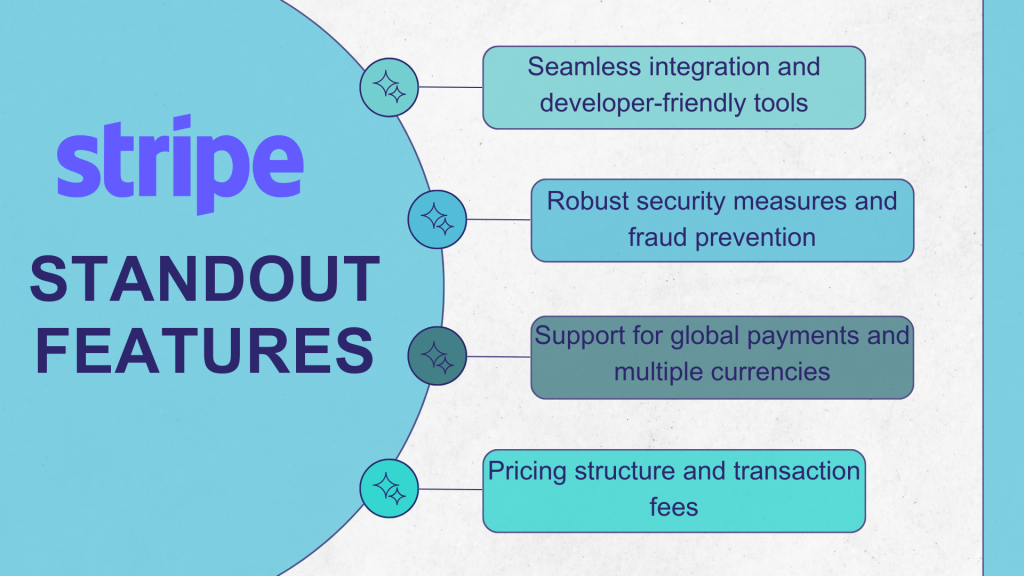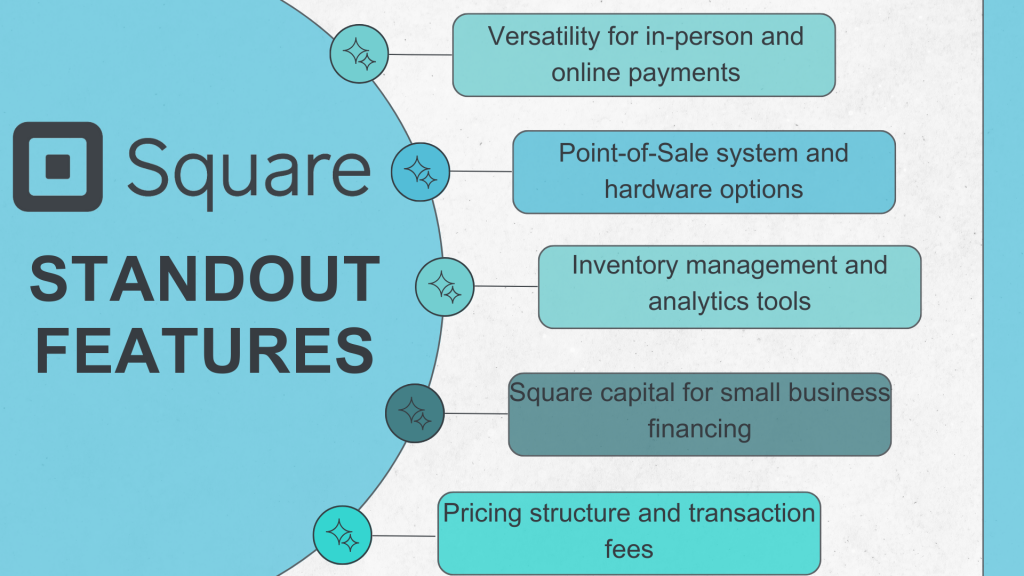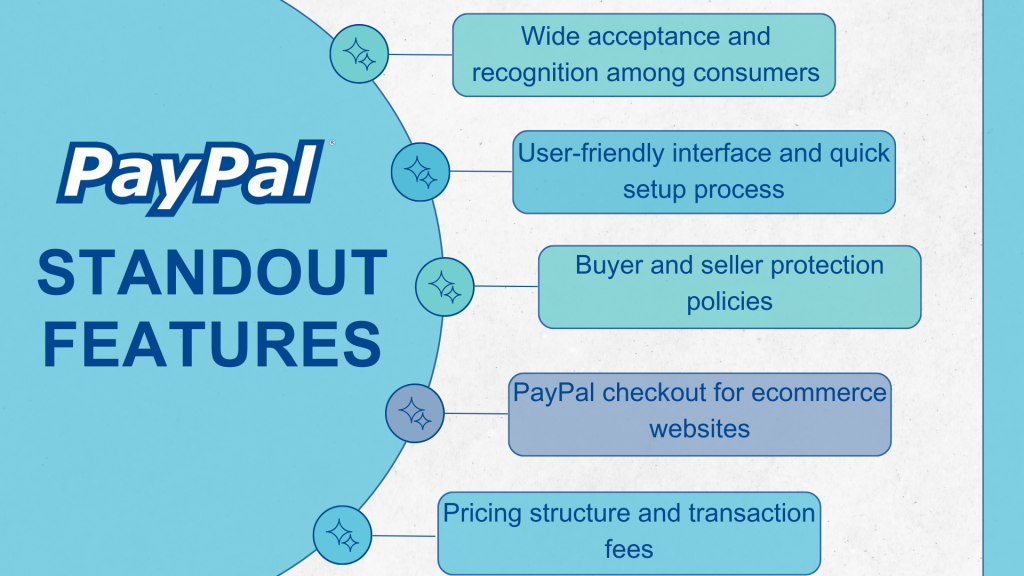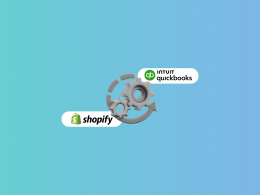In today’s digital economy, payment processing platforms play a vital role in facilitating seamless transactions between businesses and customers. Among the leading players in this domain are Stripe, Square, and PayPal. This article aims to provide a comprehensive comparison of these platforms, exploring their key features, benefits, and limitations to help businesses make an informed decision.
An overview of Stripe
Stripe is a popular payment processing platform known for its developer-friendly tools and seamless integration options.

Seamless integration and developer-friendly tools
One of Stripe’s standout features is its commitment to providing developer-friendly tools and a seamless integration experience. With a robust set of APIs and client libraries available in multiple programming languages, Stripe simplifies the process of integrating payment functionality into websites and applications. Its well-documented API and comprehensive developer resources enable businesses to quickly and efficiently integrate Stripe into their existing systems. This flexibility makes Stripe a favorite among developers and tech-savvy businesses.
Robust security measures and fraud prevention
When it comes to processing payments, security is of utmost importance. Stripe prioritizes security and implements advanced fraud prevention measures to protect businesses and customers from potential risks. It employs machine learning algorithms and advanced data analytics to detect and prevent fraudulent transactions. Stripe’s comprehensive security measures, including two-factor authentication, encryption, and real-time risk assessment, ensure a safe and secure payment environment.
Support for global payments and multiple currencies
For businesses operating on a global scale, Stripe’s support for international payments and multiple currencies is a significant advantage. Stripe allows businesses to accept payments from customers around the world, supporting over 135 currencies. With its global reach, businesses can expand their customer base and streamline their payment processes across different countries and regions. Additionally, Stripe provides localized payment methods, catering to specific regional preferences and increasing conversion rates.
Pricing structure and transaction fees
When considering payment processing platforms, understanding the pricing structure and transaction fees is crucial. Stripe adopts a transparent pricing model, charging a small fee per transaction. The exact fees vary based on the country and the type of transaction, so it’s important for businesses to review the pricing details on Stripe’s website. While Stripe’s fees may be slightly higher compared to some competitors, businesses often find the added value of Stripe’s developer-friendly tools and extensive customization options well worth the investment.
An overview of Square
Square is a versatile payment processing platform that caters to both in-person and online transactions.

Versatility for in-person and online payments
One of Square’s strengths lies in its versatility, offering a range of payment solutions suitable for various business models. Square’s offerings include mobile card readers and Point-of-Sale (POS) systems, making it an ideal choice for businesses that require in-person payment processing capabilities. The mobile card readers allow businesses to accept payments anywhere, whether at a brick-and-mortar store or while on the go. Additionally, Square provides online payment APIs and integrations, enabling businesses to seamlessly process online transactions through their e-commerce websites.
Point-of-Sale system and hardware options
Square’s comprehensive Point-of-Sale (POS) system is designed to streamline operations for businesses that have physical locations. The system offers a range of hardware options, including card readers, cash registers, barcode scanners, and receipt printers, allowing businesses to customize their setup according to their specific needs. The POS system also supports inventory management, employee management, and customer relationship management, providing businesses with an all-in-one solution for their in-person sales.
Inventory management and analytics tools
Square’s payment processing capabilities go beyond just facilitating transactions. It also offers robust inventory management features, allowing businesses to track and manage their products efficiently. With Square’s inventory management tools, businesses can keep track of stock levels, set up low-stock alerts, and generate detailed reports on product performance. These features provide valuable insights into sales trends and inventory optimization.
Square capital for small business financing
Square Capital is Square’s lending arm, offering small business financing options. Square uses transaction data and other metrics to evaluate creditworthiness and provide tailored loan offers to eligible businesses. This service simplifies the financing process for small businesses, allowing them to access the capital needed for growth and expansion.
Pricing structure and transaction fees
Square adopts a transparent and straightforward pricing structure. It charges transaction fees based on the type of transaction and whether it is conducted online or in-person. Square’s fees are competitive and generally lower than traditional merchant account providers, making it an attractive option for businesses with moderate transaction volumes. However, businesses should review Square’s website for detailed pricing information as rates may vary based on specific circumstances and transaction volumes.
An overview of PayPal
PayPal is a widely recognized and accepted payment processing platform with a user-friendly interface and broad consumer reach.

Wide acceptance and recognition among consumers
PayPal has gained significant popularity and trust among consumers, making it a widely recognized and accepted payment option. With millions of active users worldwide, PayPal offers businesses access to a large customer base. The familiarity and convenience of PayPal can lead to increased conversion rates, as customers often prefer using a payment method they already trust.
User-friendly interface and quick setup process
One of PayPal’s key strengths lies in its user-friendly interface, making it easy for businesses to set up and start accepting payments quickly. The platform provides a simple and intuitive dashboard that allows businesses to manage their payments, invoices, and other financial aspects seamlessly. The streamlined setup process ensures that businesses can get up and running with minimal effort and technical know-how.
Buyer and seller protection policies
PayPal offers robust buyer and seller protection policies, which provide an additional layer of security and confidence for both customers and businesses. These policies help mitigate the risk of fraud and disputes, assuring customers that their purchases are protected. For businesses, PayPal’s protection policies can provide peace of mind, minimizing the impact of fraudulent transactions and chargebacks.
PayPal checkout for ecommerce websites
PayPal Checkout is a popular feature offered by PayPal, enabling businesses to integrate PayPal as a payment option on their e-commerce websites seamlessly. With PayPal Checkout, customers can complete their transactions quickly, reducing cart abandonment rates. The trusted and recognizable PayPal brand further enhances the checkout experience, as customers can make purchases securely without entering their payment details on individual websites.
Pricing structure and transaction fees
Understanding the pricing structure and transaction fees is essential when considering PayPal as a payment processing platform. PayPal’s pricing is transparent and typically consists of transaction fees based on the transaction amount and country-specific rates. For businesses with high transaction volumes or complex requirements, PayPal offers tailored pricing plans, providing flexibility to match specific needs. It’s important for businesses to review PayPal’s website or consult with a PayPal representative to determine the applicable fees for their particular circumstances.
Stripe vs. Square vs. PayPal: comparison
To make an informed decision about the best payment processing platform for your business, it’s essential to compare Stripe, Square, and PayPal across various factors.
Payment processing capabilities and supported payment methods
All three platforms support core payment processing capabilities, including credit and debit card payments. Stripe’s flexibility shines through in its ability to handle complex payments, such as recurring and subscription billing.
Square excels in in-person payments, providing businesses with the necessary hardware and software tools for face-to-face transactions.
PayPal’s strength lies in its wide range of accepted payment methods, including PayPal balances, credit cards, and bank transfers, catering to a broad consumer base.
Integration options and ease of use for businesses
Stripe’s developer-friendly tools and extensive documentation make it a top choice for businesses with technical expertise. Developers appreciate the flexibility and control Stripe offers, enabling them to customize payment flows and integrate with other business systems seamlessly.
Square’s all-in-one POS system and hardware options simplify the setup process for businesses, particularly those with physical locations.
PayPal’s user-friendly interface and quick setup process cater to businesses seeking simplicity and ease of use, requiring minimal technical knowledge.
Security measures and fraud prevention mechanisms
All three platforms prioritize security and implement measures to safeguard businesses and customers against fraudulent activities. Stripe and PayPal employ advanced fraud prevention systems, utilizing machine learning algorithms and real-time risk assessment to detect and prevent fraudulent transactions. Square also ensures secure transactions across its platform, maintaining the trust of its users.
International and multi-currency support
Stripe’s extensive support for global payments and multiple currencies sets it apart in terms of international capabilities. It provides businesses with the infrastructure to accept payments from customers worldwide and handle complex tax and compliance requirements across different regions. Square and PayPal also offer international support, allowing businesses to expand their reach, but Stripe’s capabilities in this regard are more comprehensive.
Additional features and services offered
Square distinguishes itself by offering a wide range of additional features and services. Its POS system provides businesses with inventory management, employee management, and analytics tools, helping them streamline their operations and gain valuable insights into their business performance. Square Capital offers small business financing, leveraging transaction data to evaluate creditworthiness and provide tailored loan options.
PayPal’s integration options and PayPal Checkout for e-commerce websites are notable features, making it a convenient choice for online businesses.
Stripe’s focus on developer tools, customization options, and support for complex payments positions it as the platform of choice for businesses with specific technical requirements.
Pricing and transaction fees comparison
Understanding the pricing structures and transaction fees of Stripe, Square, and PayPal is crucial for businesses to assess the cost-effectiveness of each platform. Stripe’s fees may be slightly higher compared to some competitors, but businesses often find the added value of its developer-friendly tools and customization options worthwhile.
Square’s pricing is competitive, particularly for businesses with moderate transaction volumes, and its transparent fee structure provides clarity.
PayPal’s fees vary based on the transaction amount and specific circumstances, and businesses should review the details on PayPal’s website for a comprehensive understanding of their pricing structure.
Choosing the right platform for your business
When selecting a payment processing platform, businesses should consider various factors:
- Identify the target audience and business requirements
Understanding the target audience and business requirements is crucial in selecting the most suitable payment processing platform. Consider factors such as the business model, customer preferences, geographic reach, and transaction volumes.
- Evaluate scalability and future growth considerations
Businesses should assess whether the chosen platform can scale with their growth and accommodate increased transaction volumes. Consider the platform’s capabilities in handling high traffic and complex payment requirements.
- Assess integration options with other business tools
Evaluate how well the payment processing platform integrates with other essential business tools, such as accounting systems, inventory management software, or customer relationship management (CRM) platforms. Seamless integration can streamline operations and improve efficiency.
- Research user reviews and customer support quality
Read user reviews and testimonials to gauge the experiences of other businesses using the platforms. Consider the quality of customer support provided by each platform, as reliable assistance is crucial when facing issues or requiring technical support.
Based on these considerations, businesses can make an informed decision that aligns with their unique needs and goals.
Bottom line
In the competitive landscape of payment processing platforms, Stripe, Square, and PayPal stand out for their distinct features and capabilities. By comparing their payment processing capabilities, integration options, security measures, international support, additional features, and pricing structures, businesses can select the platform that best suits their specific requirements. Careful consideration of these factors will enable businesses to optimize their payment processes, enhance customer experiences, and drive success in the digital economy. Whether it’s Stripe’s developer-friendly tools, Square’s versatility, or PayPal’s wide acceptance among consumers, each platform offers its own advantages, and businesses should choose the one that aligns with their unique needs and growth aspirations.
Want to learn more? Check out lists of Stripe competitors and Stripe alternatives!






